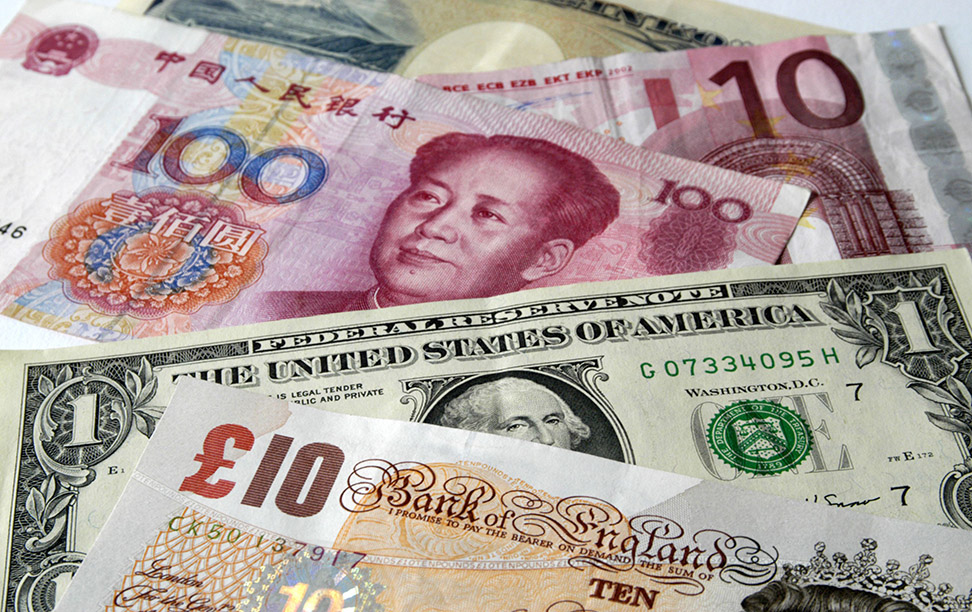Wall Street rides Fed rate cut hint higher

MG News | July 12, 2019 at 09:21 PM GMT+05:00
July 12: Wall Street pushed higher into record territory Friday after Federal Reserve chief Jerome Powell all but flicked the switch on a US interest rate cut at the end of the month.
After big losses at the start of the week, trading floors have been much more upbeat since a two-day congressional testimony in which Powell hinted at a possible reduction in borrowing costs, with markets now betting on the size of the anticipated cut.
After the Dow stocks index pushed above 27,000 points for the first time on Thursday, it pushed further into record territory on Friday, as did the broader S&P 500. The tech-heavy Nasdaq stayed close to record highs.
"Dealers remain divided as to the size of the (Fed) cut... but the view across the board is that monetary policy will be loosened," said analyst David Madden at CMC Markets UK.
While the positive sentiment initially filtered through to Asia and Europe on Friday, the momentum petered out in late European trading.
For Chris Beauchamp, chief market analyst at online trading firm IG, "the question is now whether equities can survive an earnings season that at present is forecast to show the second quarter of declines in earnings."
Further stock market gains came despite unease caused by US President Donald Trump accusing China of backsliding on a trade promise -- just days after the two sides tentatively began telephone talks on resolving their tariffs war.
Meanwhile, China's economy grew at its slowest rate in nearly three decades in the second quarter, hit by the US-China trade war and weakening global demand, according to an AFP survey of analysts.
The world's second largest economy expanded 6.2 percent in April-June, the poll of 10 economists estimated, ahead of the official release of gross domestic product figures Monday.
- Oil prices rise -
Elsewhere, geopolitical tensions after armed Iranian boats threatened a British oil tanker earlier in the week provided support for oil prices, although gains were limited by longer-term oversupply concerns.
Iran's menacing of the BP supertanker on Wednesday appeared to be in retaliation for Britain's seizure of the Iranian Grace 1 tanker off Gibraltar on July 4.
"With Iran seeking retribution for the UK's actions around Gibraltar, there is a distinct possibility that we could see an upside shock to prices," said IG trading group analyst Joshua Mahony.
"That being said, in the absence of such shocks, US production is likely to remain a drag on prices."
Iran's Revolutionary Guards denied involvement in the British Heritage incident but said the United States and Britain would "strongly regret" British detention of the fully-loaded Iranian tanker off Gibraltar for violating sanctions on Syria, allegedly the planned recipient of its cargo.
Britain said Friday it will send a second warship to the Gulf, while the Pentagon said Thursday it was discussing military escorts for vessels in the Gulf.
But the rises in oil prices as a result of the incident have been capped by an oversupplied oil market, according to traders.
And the IEA on Friday said the recent decision by oil producing countries to prolong cuts in output will not fundamentally change the outlook for the market.
"The widely-anticipated decision by OPEC+ ministers to extend their output agreement to March 2020 provides guidance but it does not change the fundamental outlook of an oversupplied market," the International Energy Agency said in its latest monthly report.
At a meeting two weeks ago in Vienna, OPEC countries and other oil producers such as Russia agreed to prolong by nine months daily output cuts aimed at supporting prices and soaking up excess supplies.
But supply is currently well in excess of demand, said the Paris-based institution that provides advice to oil-consuming nations.
AFP/APP
Related News
| Name | Price/Vol | %Chg/NChg |
|---|---|---|
| KSE100 | 134,299.77 290.06M |
0.39% 517.42 |
| ALLSHR | 84,018.16 764.12M |
0.48% 402.35 |
| KSE30 | 40,814.29 132.59M |
0.33% 132.52 |
| KMI30 | 192,589.16 116.24M |
0.49% 948.28 |
| KMIALLSHR | 56,072.25 387.69M |
0.32% 180.74 |
| BKTi | 36,971.75 19.46M |
-0.05% -16.94 |
| OGTi | 28,240.28 6.19M |
0.21% 58.78 |
| Symbol | Bid/Ask | High/Low |
|---|
| Name | Last | High/Low | Chg/%Chg |
|---|---|---|---|
| BITCOIN FUTURES | 118,140.00 | 119,450.00 115,635.00 |
4270.00 3.75% |
| BRENT CRUDE | 70.63 | 70.71 68.55 |
1.99 2.90% |
| RICHARDS BAY COAL MONTHLY | 97.50 | 0.00 0.00 |
1.10 1.14% |
| ROTTERDAM COAL MONTHLY | 108.75 | 108.75 108.75 |
0.40 0.37% |
| USD RBD PALM OLEIN | 998.50 | 998.50 998.50 |
0.00 0.00% |
| CRUDE OIL - WTI | 68.75 | 68.77 66.50 |
2.18 3.27% |
| SUGAR #11 WORLD | 16.56 | 16.60 16.20 |
0.30 1.85% |
Chart of the Day
Latest News
Top 5 things to watch in this week
Pakistan Stock Movers
| Name | Last | Chg/%Chg |
|---|
| Name | Last | Chg/%Chg |
|---|



